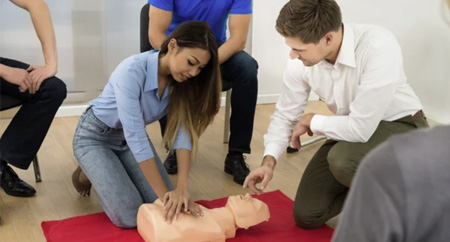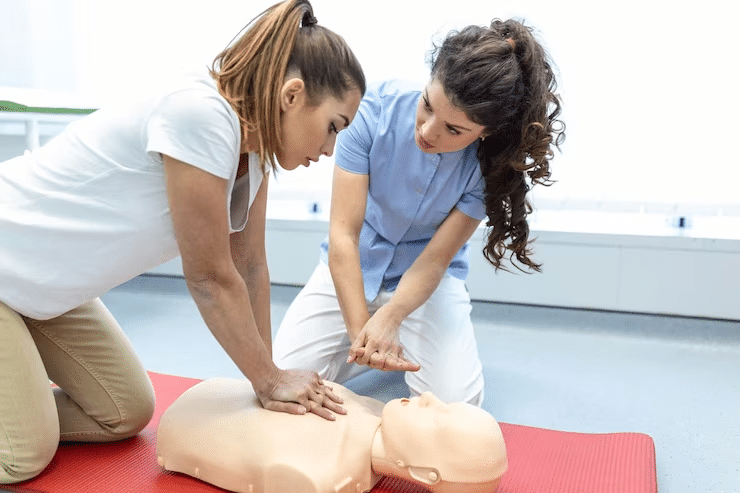Introduction: Recognizing the Value of Emergency Treatment Courses
First aid training courses are indispensable for anyone aiming to equip themselves with life-saving skills. Whether you are a moms and dad, educator, caretaker, or simply an interested individual, knowing emergency treatment can make all the distinction in emergency circumstances. However, there are several myths surrounding these training courses that might discourage people from registering. This short article intends to debunk these mistaken beliefs and offer quality on what first aid and mouth-to-mouth resuscitation programs absolutely entail.
What is an Emergency treatment Course?
A first aid course is a training program developed to educate individuals how to react efficiently to clinical emergencies. These programs cover a variety of topics including mouth-to-mouth resuscitation (Cardiopulmonary Resuscitation), injury treatment, choking relief, and therapy for burns and cracks. Individuals commonly find out with hands-on method along with academic understanding, enabling them to obtain self-confidence when confronted with real-life scenarios.
The Significance of mouth-to-mouth resuscitation in Emergency Treatment Training
CPR is among the most vital components taught in first aid courses. The capability to execute mouth-to-mouth resuscitation effectively can mean the distinction in between life and death for somebody experiencing heart attack. In most emergency treatment and mouth-to-mouth resuscitation training courses, participants are educated on the correct techniques for grown-up, child, and infant CPR. In addition, they discover exactly how to utilize computerized external defibrillators (AEDs), which can dramatically enhance survival prices if utilized promptly.
Top Myths About First Aid Courses Debunked
Myth 1: First Aid Courses Are Just for Healthcare Professionals
One typical misconception is that just medical care experts need to take first aid programs. This could not be better from the reality!
Why Everyone Need to Take into consideration Taking a First Aid Course
Anyone can gain from learning basic first aid abilities no matter their profession. Emergencies happen everywhere-- in homes, institutions, offices, and public spaces-- and having actually trained people available can save lives.
Myth 2: You Need to Be Fit to Take a CPR Course
Many people think that being healthy is a demand for taking CPR training courses.
Reality Check: No Health And Fitness Level Required
In truth, these programs are developed for all health and fitness degrees. While some physical tasks might be entailed (such as doing chest compressions), trainers adjust training techniques so everybody can participate fully.
Myth 3: First Aid Training Is Too Made Complex to Understand
Another myth revolves around the assumption that first aid training is too complicated or technical.

Simplifying Facility Procedures
First help courses use uncomplicated language and practical presentations that make finding out easily accessible for every person. Many people locate they can comprehend the ideas with relative convenience after simply a few hours of training.
Myth 4: Certification Is Only Essential for sure Professions
Some people think that getting a first help certificate is only important if you operate in details fields like medical care or education.
Certification Matters Across All Fields
In truth, numerous http://spenceriyks635.image-perth.org/browsing-the-globe-of-cpr-courses-which-one-is-right-for-you companies throughout numerous industries prefer or need employees to have current first aid certifications as component of their office safety and security protocols.
Myth 5: When Educated, You Do Not Need Refreshers
People frequently think that when they have actually finished their training, they're set for life!
Lifelong Learning Is Key
However, clinical suggestions and treatments advance gradually. Routine correspondence course ensure your abilities remain up-to-date-- ideally every 2 years-- to maintain your first help certificate status.
Myth 6: Online Training Is Equally As Effective as In-Person Training
With online finding out obtaining popularity, lots of assume it gives an equivalent level of education and learning compared to in-person classes.
Hands-On Method Trumps Screen Time
While online resources offer beneficial info, nothing defeats hands-on practice supplied by certified trainers during in-person sessions where you can interact with equipment like AEDs and method techniques on mannequins.

Key Elements of Emergency treatment Courses
Understanding Different Types of First Aid Rushes Available
When it pertains to choosing a first aid course, you'll discover various offerings customized for different requirements:
- Basic Life Assistance (BLS) Pediatric First Aid Wilderness First Aid Workplace Security Training
Each kind emphasizes distinctive material based upon the environment where abilities could be applied.
Importance of Hands-On Method in Knowing Mouth-to-mouth Resuscitation Techniques
Why Practical Experience Issues More Than Concept Alone?
One major element that establishes effective first aid training courses apart is the hands-on experience they provide participants. Involving straight with resuscitation strategies permits students not only to understand yet also preserve crucial information far better than via talks alone.

How Long Does It Require To Complete an Emergency Treatment Course?
Typical Duration Varies Based on Accreditation Type
Generally speaking:
- Basic first-aid training might take anywhere from 4-8 hours. Comprehensive programs like First Aid and CPR course could last approximately 16-20 hours over several days.
The period typically depends upon accreditation demands or business needs.
What Is Covered in a Common Emergency Treatment Course?
Key Subjects Usually Included
Recognizing emergencies Assessing targets' conditions Performing CPR Using AEDs Treating injuries & & burns Managing choking incidentsThese fundamental subjects prepare people for various emergency scenarios they'll likely encounter throughout life.
FAQs Concerning Emergency treatment Courses
FAQ 1: What should I give my emergency treatment course?
Most training courses give devices; nevertheless, bringing personal note-taking products can aid enhance your understanding throughout sessions.
FAQ 2: Exactly how commonly should I renew my certification?
Typically every two years is advised; this ensures you're updated on any kind of changes in guidelines or procedures within first-aid practices.
FAQ 3: Can I receive my certification online?
While some elements might be completed online (like theory), sensible abilities need to usually be shown in person under supervision prior to qualification is granted.
FAQ 4: Do I require previous experience before enrolling?
No prior experience necessary! Most beginner-level courses invite those with no background understanding whatsoever; they're created specifically for newcomers!
FAQ 5: What effect does finding out first-aid have at my workplace?
Having certified personnel fosters an atmosphere where safety and security comes to be prioritized-- it outfits associates with essential skills leading towards quicker responsiveness during unanticipated events!
FAQ 6: Are there unique factors to consider concerning children's safety when finding out about pediatric-first-aid?
Absolutely! Pediatric-specific programs concentrate heavily on age-related subtleties guaranteeing caregivers feel great responding properly when confronted with emergencies including infants/children!
Conclusion
Understanding the leading myths concerning first aid programs aids demystify this necessary training while motivating extensive participation throughout demographics who might or else shy away due mistaken beliefs! Not just does completing such programs empower individuals within areas-- they additionally promote safer settings through enhanced recognition combined with readiness amongst residents hltaid011 first aid classes near me almost everywhere aiming in the direction of enhanced wellness outcomes overall! So do not think twice-- sign up today right into among those impactful CPR or various other appropriate first-aid-courses!